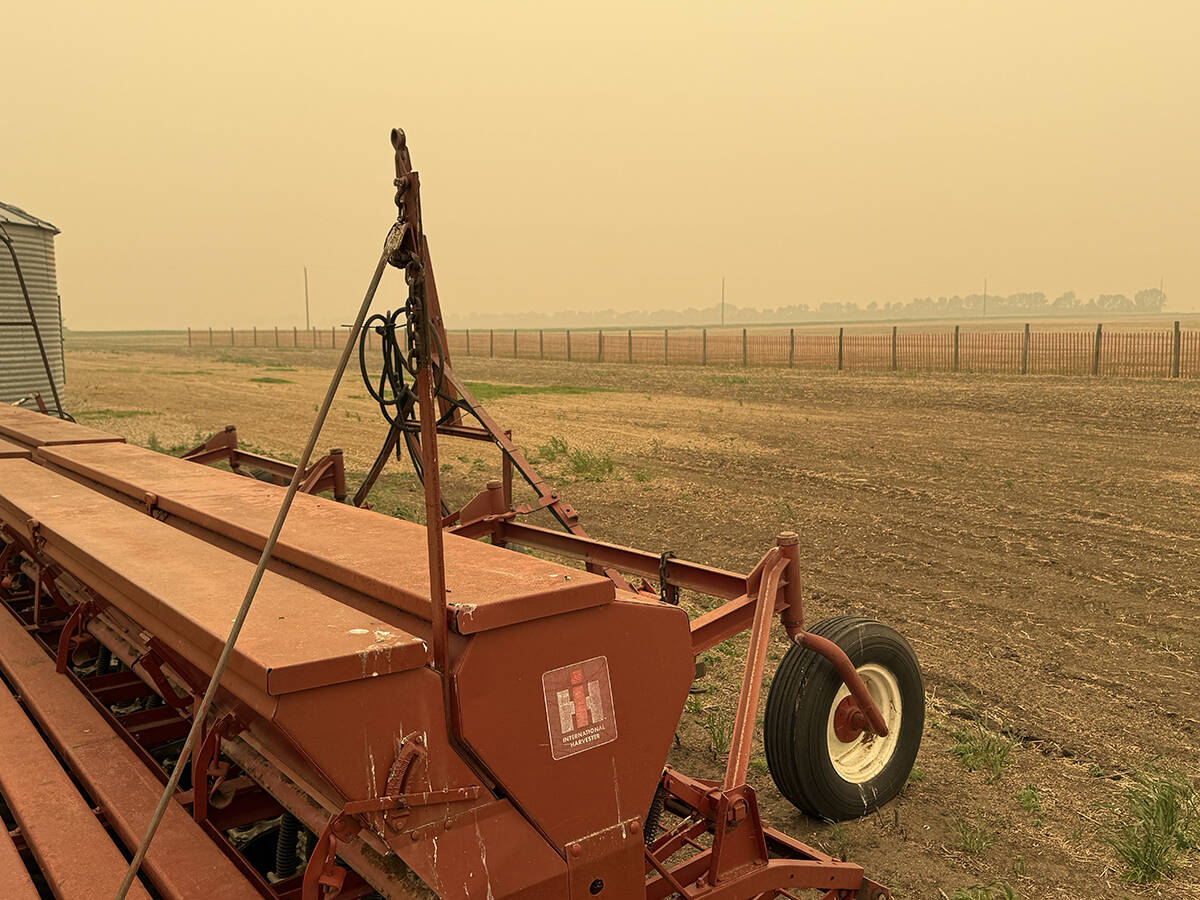The federal government plans to climb aboard the growing honey wagon of local governments and groups that want to do something about hog manure.
Over the next three years, it will help people involved in the hog industry and provincial governments with what it is calling the hog environmental management strategy.
“On one hand, we want these kinds of operations to go ahead. It’s good for the economy, it’s the kind of thing hog producers want to do,” said John Harvard, a Winnipeg MP who is parliamentary secretary to the minister of agriculture.
Read Also

Wildfires have unexpected upside this year
One farmer feels smoke from nearby wildfires shrouded the July skies and protected his crop from the sun’s burning rays, resulting in more seeds per pod and more pods per plant.
“But there are the rural folk who are concerned about the environment, concerned about things like odor and so on.”
Harvard briefly talked about the initiative at the annual meeting of Keystone Agricultural Producers here last week.
Michael Presley, leading the initiative for Agriculture Canada’s environment bureau, said the department got involved at the request of the Canadian Pork Council.
Outline strategy
He explained the department will work hard to help the industry develop a “coherent game plan” for hog manure, and will avoid duplicating work taking place at local and provincial levels.
So far, the group has prepared a report on the manure situation across Canada and identified some areas where the federal government might be able to help:
- Doing manure management research and sharing results across the country.
- Evaluating the latest “mousetraps” and mechanisms on the market for dealing with manure.
- Explaining to Canadians that the hog industry here does not share the much-publicized problems encountered in places like North Carolina.
Manitoba’s agriculture minister wasn’t aware of the strategy, but said he welcomed it, particularly if the federal government wants to spend more money on the issue.
Enns recently announced a Manitoba manure management committee that will investigate research and find ways to get it to farmers.
“I think this is what is sometimes frustrating to voters and people and taxpayers, as we in government stumble over each other trying to do the same thing,” said Enns, after learning about the similar federal initiative.
“Hogs is a high profile issue in agriculture, and everybody wants to get in on the act, kind of thing.”
The president of the Canadian Federation of Agriculture said livestock farmers need action and assistance from governments now, not in three years.
“I think that’s way behind what’s happening,” said Jack Wilkinson, commenting on the federal strategy.
He said governments need to help farmers find the technology to handle manure and then provide financial help with adapting their operations.
He applauded the Quebec provincial government for recently announcing a $320 million program to help farmers adapt to environmental challenges.














